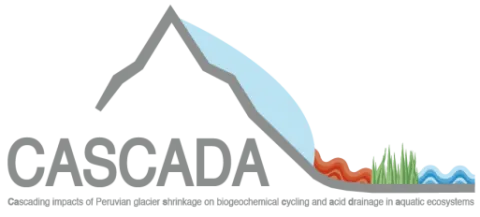As part of CASCADA, OTEG have manufactured and deployed four cutting-edge and unique lab-on-chip (LOC) iron sensors to provide high resolution measurements of dissolved iron in the glacial streams. These measurements will contribute to enhanced understanding of the processes resulting in metal contamination of glacial fed rivers. The iron sensors have been installed in two contrasting glacial-fed catchments in the Cordillera Blanca, at upstream and downstream sites. The highest deployment site is at almost 5,000m altitude in the Peruvian Andes.
The LOC iron sensors perform wet chemical analysis using the colourimetric ferrozine method. The sensors are required to cover a large analytical range: iron levels vary from 2nM in the pristine catchment to over 20µM in the acidified catchment.
Alongside the iron sensors, we are also deploying a suite of off-the-shelf sensors optimised for measuring glacial meltwater that we developed via a previous project (DELVE). This measures temperature, conductivity, dissolved oxygen, pH and turbidity.
OTEG personnel (Alex Beaton and Sam Monk) visited the field sites in Peru to deploy the sensors during August 2019 and February 2020.


